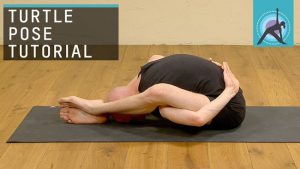with Defne Dinler
I woke up feeling way too tired to attend a flexibility class. Thankfully I’d promised someone I’d meet them there, otherwise I might have bailed on the workout because I hadn’t given myself enough sleep time to wake up before dawn and feel robust and ready for the workout ahead.
 If you’ve never been to a flexibility class, it’s like evil yoga. It’s slow paced and you’re hurting the whole time. Time just doesn’t pass fast enough when your muscles are tearing to lengthen one strand at a time.
If you’ve never been to a flexibility class, it’s like evil yoga. It’s slow paced and you’re hurting the whole time. Time just doesn’t pass fast enough when your muscles are tearing to lengthen one strand at a time.
Needless to say, I was a touch cranky. During the class, people talked about wanting and needing coffee. I don’t like the taste of coffee, but I do love coffee mocha with all that delicious chocolate. I started daydreaming about a mocha. Then I started craving it, which led to “I NEED a mocha!”
needing coffee. I don’t like the taste of coffee, but I do love coffee mocha with all that delicious chocolate. I started daydreaming about a mocha. Then I started craving it, which led to “I NEED a mocha!”
Luckily, I couldn’t act on it right away as there was another half hour of the class to go. The timing gave me the opportunity to witness my mind make plans on which coffee shop to go to, which non-milk to order in my drink, whether I wanted to add sugar or not . . . etc. I know how to indulge in fantasy land for my taste buds.
Then, the other side of my mind kicked in. “Hey! What happened to the health kick you were going on with no sugar, no gluten, no dairy . . . etc.?”
Thus, the battle of my mind began; one part saying, you’re supposed to be strong and stay healthy, while the other part said, but I want and need these, just one more. Due to my current reality—sitting in strain-full pain with each flexibility exercise— it was much easier to be in this mind home as opposed to in my body.
 In the midst of this battle, I realized I wanted sugar to numb out the discomfort of not feeling fully awake and present. Often, when I crave sugar, it’s my cue that my mind is running away from a pained feeling. My sleep deprived grumpiness was still there. I had even added pain to it with this class. I wasn’t in a place of feeling “good”. Instead, I was feeling weak and disconnected. Instead of just being with the discomfort of my current state and accepting it, I wanted a quick pill fix—I am quite human.
In the midst of this battle, I realized I wanted sugar to numb out the discomfort of not feeling fully awake and present. Often, when I crave sugar, it’s my cue that my mind is running away from a pained feeling. My sleep deprived grumpiness was still there. I had even added pain to it with this class. I wasn’t in a place of feeling “good”. Instead, I was feeling weak and disconnected. Instead of just being with the discomfort of my current state and accepting it, I wanted a quick pill fix—I am quite human.
And, still, it’s times like these that I get to recognize the opportunity to witness myself and see what I am doing and where it comes from and what I can choose to do about it, or not.
I find it simply amazing how much we can build tolerance to being with the discomfort of our emotions and challenging/confronting our belief systems. Sure, the beginning is the hardest. It can even feel like you will die if you go there. That’s the young terrified child in you that used their mind to separate from the pain in the first place. Now as an adult, or even a teenager, you have the capacity to take care of those parts. It’s like the first time you go to a gym. If you’ve never been before, the machines are daunting, and the weights don’t mean anything because you don’t know what you can do. You can slowly explore each machine and weight to make yourself feel more comfortable in that space, or you can get a trainer to teach you and help build your understanding and awareness with each machine and weight so that eventually you go into a gym and even if it’s a different gym than yours, enough things are familiar. You build familiarity and comfort as well as tolerance to the space and weights. If you work on yourself regularly, you don’t keep the weights the same for the rest of your life, right? When it gets too easy, you up your limit to add strength. You get to work with emotions the same way. You build tolerance and life goes from crisis land to a space you get to feel at more peace with because you are more comfortable within yourself.
 These sorts of self-care and self-love practices are pro-active versus sticking to the past patterns that keep up numbed out. Making sure you do what you need is self-care and self-love, like preparing your meal the day before or making sure you go to bed earlier so you get enough sleep for an earlier start to your day. The opportunity for self-compassion can come in where your needs might differ than other people’s needs, and you can accept yourself for it. Or, if you did not take care of your need, it’s an opportunity to be gentle with yourself and find a new way of self-care.
These sorts of self-care and self-love practices are pro-active versus sticking to the past patterns that keep up numbed out. Making sure you do what you need is self-care and self-love, like preparing your meal the day before or making sure you go to bed earlier so you get enough sleep for an earlier start to your day. The opportunity for self-compassion can come in where your needs might differ than other people’s needs, and you can accept yourself for it. Or, if you did not take care of your need, it’s an opportunity to be gentle with yourself and find a new way of self-care.
Self-care is not necessarily a quick fix. Often quick fixes come with side effects. If I went for the coffee mocha, my first few clients would get a wide awake me, while the afternoon bunch would get a version of me crashing from caffeine. Luckily, I don’t get bad crashes from caffeine, but I don’t like the way I feel with caffeine in my system. So really, it’s a no win except I get to tell myself I’m more awake—a grand delusion indeed.
 Instead, I can explore other options to support me in that moment. Maybe something with minerals or some extra time for myself to find myself again, like a walk, meditation, a secret little dance in my office before my first client. I have many tools that make me feel good, that keep me connected to myself. Coffee is the quicker fix because I don’t have to expend any effort at all. I get to be lazy.
Instead, I can explore other options to support me in that moment. Maybe something with minerals or some extra time for myself to find myself again, like a walk, meditation, a secret little dance in my office before my first client. I have many tools that make me feel good, that keep me connected to myself. Coffee is the quicker fix because I don’t have to expend any effort at all. I get to be lazy.
And, in truth, I don’t have to be lazy with myself. Sure, it is uncomfortable to be with a discomfort. It’s what we spend our whole lives trying to get away from as fast as possible. I wrote an article in my blog about the mind as a marathon runner (http://www.therapyinthemoment.com/minds-power-struggle/) doing just that. Instead, if we just sit with what the discomfort and feel into what is, by truly noticing all the sensations that go with it, we can notice emotions. With emotions come belief systems, freeing or limiting.
If you take the time to look at a roadmap and understand it, you can find your way much easier in an unknown city, right? There is so much we do reactively. We don’t even get to know ourselves truly because we are so afraid of finding out our fears and what our discomfort holds.
That morning, I sat with and acknowledged my self-judgment around going to bed later and “you know better!”, “what’s wrong with you?”, “what kind of an adult, let alone therapist are you? Can’t even practice what you preach.” It was harsh. I was harsh. All my “not good enough” bits were up and about welcoming and strengthening the belief system of “I am not good enough”.
I promise you, I did not want to feel into that painful thought. Thus, my mind’s race for a quick fix pill: sugar and caffeine.
The healthy, loving self-care path, however, was to be with that pain, to forgive myself for the action and the harshness that came from it and allow for gentleness. This gentleness has taken many years to develop, to be allowed as a possibility in my life. And every time I do it, I get a happy high. The part of me that holds the wound of “not good enough” is cared for gently and lovingly and is taken care of by the one person who can truly prove otherwise, myself. Every time I feel discomfort, I know it is my opportunity to allow space to heal myself.
Defne Dinler is a licensed somatic counseling psychotherapist who uses action-oriented therapeutic modalities that lead to a deeper understanding and achievement of goals for teens and adults. She specializes in behavioral challenges, depression, anxiety, and trauma. As a body psychotherapist, her belief is that to heal the mind one needs to connect to their body first.
Our gratitude to the following for our images:
Turtle pose: http://www.EkhartYoga.com
Coffee craving: https://www.health24.com/Diet-and-nutrition/News/craving-coffee-its-in-your-dna-20160826
Sugar craving: https://fitnesscrest.com/sugar-cravings/
Meditation from SPT file







